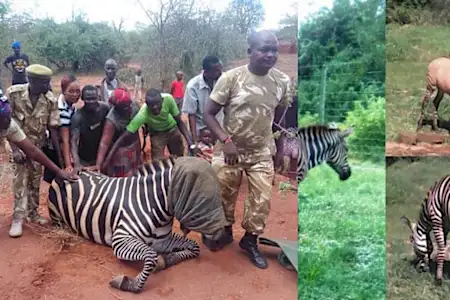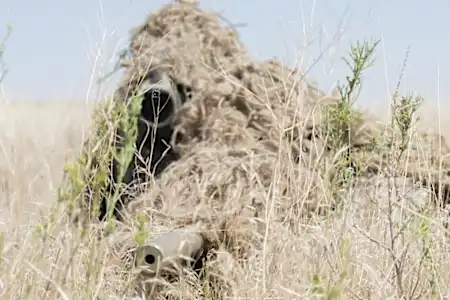By Sani Idris
Loyalty Youth Talent Foundation, a Kaduna based Non Governmental Organisation, on Sartuday in Kaduna began a medical outreach to 5,000 residents in Kaduna, and sensitised them on the dangers of drug abuse.
The News Agency of Nigeria (NAN), report that the communities who benefited from the outreach were Sabo, Unguwan Yelwa, and Barnawa for 'Zone one' and subsequently to Zaria and other zones in the state.
The Programme was supported by Nigerian Breweries, Baobab Bank and Unilever PLC.
The Chairman of the Foundation, Babangida Ibrahim, said the aim of the sensitisation and outreach was to reawaken the youths on the dangers of drug abuse which has a multiplier effect leading to crimes and issues of insecurity.
He explained that the sensitisation was also aimed at enlightening the youths on sexual abuse which was a disturbing social issue and commonly caused by abuse of drugs and substances especially among the youths.
Babangida added that their sensitisation on drugs abuse which according to them was a major factor of insecurity, would be upheld zealously in order to supress the issues and to some degree have peaceful and crime free Kaduna State.
"For this 'Zone one' outeach; we will offer medical services which include suger level test, malaria treatment among others to 5,000 residents, accompanied by drug abuse and child abuse sensitisation, we will even take the exercise door to door in order to achieve the aim and target,"he said.
Earlier, The Deputy Governor of Kaduna State, Hajiya Hadiza Balarabe, restated the state's Government commitment in making sure that it's citizens enjoy the best of health care and education to develop their potentials for the betterment of themselves and make meaningful contributions to the development of the state.
Balarabe, Represented by Dr. Joseph Maigari, the Director-General of Kaduna State Bureau for Substance Abuse, Prevention and Treatment (KADBUSA), she lamented that drug abuse had destroyed many individuals' dreams and communities, noting that it was the centre of insecurity bedevilling the state.
She urged the youths to shun drug abuse, saying it has no single benefit but a path to health, economic and social destruction of one's life.
She commended the foundation for the outreach and sensitisation, urging parents so ensure good parental care to the children.
Also, Mrs Josephine Jatau, a personnel of the National Drug Law Enforcement Agency (NDLEA), advised people especially the youths to disengage from taking unprescribed drugs however legal the drug or substance may be.
She also cautioned against alcoholism and smoking tobacco, describing them as 'gate way' drugs which could lead to abuse of other unhealthy and illegal drugs and substances.
Jatau called on the youths to always be occupied by positive activities and read information about drugs which could make them know more about the dangers of consuming them.
Some of the beneficiaries, Mr Timothy Mendos and Ms Mary Sheduak, lauded the foundation for the outreach, noting that malaria and high blood sugar has killed alot of people without the root cause of their deaths traced to it.
They also urged other NGOs to emulate the foundation by reaching out to communities especially within subborb.... areas to cushion effects of malaria and other common diseases peculiar to the Nigerian societies.
==========
Other stories redirected to Pulse.ng
Omicron Variant: FG advised to ban travels from South Africa
Omicron is said to be one the most-troubling category of COVID-19 variants.
The Federal Government has been advised by renowned virologists to swiftly make moves to address the B.1.1.529 strain of COVID-19, that was first detected in South Africa.
The virologists include the Chairman, Expert Review Committee on COVID-19, Prof Oyewale Tomori; ex-National Chairman of the Association of Public Health Physicians of Nigeria, Prof Tanimola Akande; and a Professor of Medical Virology at the University of Maiduguri, Prof Marycelin Baba.
In separate interviews with Punch, the medical experts warned that Nigeria could slip into the fourth wave of COVID-19, as Christmas and New Year festivities approach.
Raising concern on the new COVID-19 strain, the World Health Organisation (WHO) on Friday, November 26, 2021, named the disease Omicron and declared it to be a variant of concern.
“Based on the evidence presented indicative of a detrimental change in Covid-19 epidemiology… the WHO has designated B.1.1.529 as a variant of concern, named Omicron,” the health agency said in a statement.
Omicron is said to be one the most-troubling category of COVID-19 variants.
The new variant has also been detected in Israel in a person coming from Malawi; Botswana; Belgium and Hong Kong.
It is the fifth variant of COVID-19 since the outbreak of the pandemic in 2019.
However, in a bid to address the spread of Omicron, Britain, the United States and the European Union have already banned flights from Southern Africa.
According to the WHO, it could take several weeks to complete studies of Omicron to see if there are any changes in transmissibility, severity or implications for COVID vaccines, tests and treatments.
“This variant has a large number of mutations, some of which are concerning,”
“Preliminary evidence suggests an increased risk of reinfection with this variant, as compared to other VOCs.” the WHO said.
While some countries have banned travelers from South Africa, where Omicron was first discovered, Nigeria is yet to make moves to address the possible incursion of the disease.
The Federal Government has, however, been slammed for being tardy in shutting down the four international airports while other countries were closing theirs as result of the disease outbreak in South Africa.
Describing the delay as a ‘disaster’ waiting to happen, Tomori said, “Given our porous border and free for all poorly guarded points of entry, plus uncoordinated genetic sequencing practice, efficient surveillance backed by laboratory support puts South Africa way ahead of us.
“Given our state of performance, it will probably take months after the new variant case has arrived in Nigeria before we detect it. By then, it would have spread all over the country so why should we not put them on alert?
“At this point, we need to keep the PSC on, as long as COVID is on, improve and upgrade genetic sequencing, get our points of entry up and doing and not a point of escape of variants into Nigeria, improve contact tracing, test people on arrival and do an efficient and effective contact tracing and follow up.”
Also, Baba called on the FG to do the needful, saying, “this is not the time for the delay as delays could be dangerous. We really need to act on time, other countries are already making moves.”
On his part, Akande advised the FG and the Nigeria Centre for Disease Control (NCDC) to learn from past experience.
“Every country will be worried and will like to prevent as much as possible importation of the new Omicron variant. Federal Government already has policies and guidelines on travel restrictions and the issue of health security.
“I am sure NCDC and other relevant stakeholders will soon come up with directives on this after weighing the pros and cons of travel bans. In taking decisions lessons learnt from previous measures particularly travel will give good guidance.
“Measures taken by countries like UK, Italy and other European countries are country-specific. These countries are already battling with a heavy burden of the 4th COVID-19 wave. I, therefore, think these countries are taking positions that are to their own interest.” he said.
Since the outbreak of COVID-19 in Nigeria in February 2020, Nigeria has recorded about four strains of the infection, with over 213,000 cases and about 3,000 associated fatalities.
Eyewitness? Submit your stories now via social or:
Email: eyewitness@pulse.ng
















![[Gallery] Always Place A Toilet Paper Roll Under The Toilet Seat At Night, Here's Why [Gallery] Always Place A Toilet Paper Roll Under The Toilet Seat At Night, Here's Why](https://images.outbrainimg.com/transform/v3/eyJpdSI6ImE4YWYyNWUxMjMwZmNhNWM5MjI5MWY4MzdmODQ1YmI2NWJjMjFhYmFjOGI5YjMxMjRhNDk3NjFiNGViMzZiNWQiLCJ3Ijo0MDAsImgiOjI2NiwiZCI6MS41LCJjcyI6MCwiZiI6NH0.webp)


![[Gallery] Always Put a Plastic Bottle on Your Tires when Parked, Here's Why [Gallery] Always Put a Plastic Bottle on Your Tires when Parked, Here's Why](https://images.outbrainimg.com/transform/v3/eyJpdSI6IjU0NzYzNzExMTBiNDJjNzIwYTM4MjFiNGRhZDU3OWE1YTNiNjNiNzJiMmMzZGVkYjg5MjVlOGI5ODgzOWU3MDkiLCJ3Ijo0MDAsImgiOjI2NiwiZCI6MS41LCJjcyI6MCwiZiI6NH0.webp)



![[Pics] Sandra Bullock's Son Is All Grown Up & He Might Look Familiar To You [Pics] Sandra Bullock's Son Is All Grown Up & He Might Look Familiar To You](https://images.outbrainimg.com/transform/v3/eyJpdSI6IjgwZGI4ZGFiMzE2NzVlZDU3MmMyZWVmNDIxNWE0ZTM5YzIxMmEzMzA4NzdmOWUzMjVkNmI0ZDViYzkyNTk3NzQiLCJ3Ijo0MDAsImgiOjI2NiwiZCI6MS41LCJjcyI6MCwiZiI6NH0.webp)
No comments:
Post a Comment